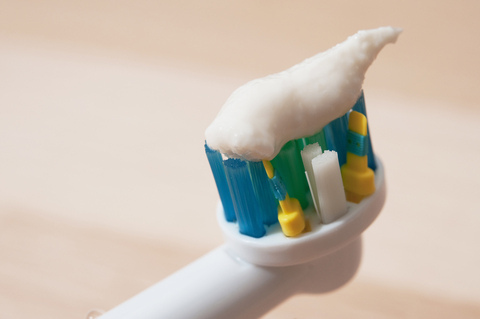September 25th, 2015

You've made an investment on spending money on getting braces, so why not keep your teeth in good health while undergoing orthodontic treatment? Dr. Karen Seder and our team at Seder Orthodontics will tell you it is just as important to develop a regular hygiene routine while you're wearing braces as you did before proceeding with treatment.
Flossing is essential to the health of your teeth and gums when you're wearing braces. Because braces may hold food, sugars and liquids upon eating, it is very important to keep on top of your brushing and flossing, as well as visiting our office for regular adjustments.
While we know it's tough enough to get kids to floss daily without braces, that battle becomes even tougher when braces are involved. Remember that by not flossing, you will become more prone to cavities and gum disease during your treatment.
When flossing, remember to gently massage your gums in between the teeth. You will find that flossing with braces takes extra time, as you will have to weave the floss through each bracket. When flossing, there should be no signs of blood. If you see blood, you are not flossing enough or properly.
Using an electric toothbrush is also a good idea to massage your gums before or after flossing as electric toothbrushes can help remove any harmful bacteria that are lingering in your mouth. And don't forget to add a mouthwash to your routine to break up any bacteria that has formed. A good mouthwash will help keep your teeth and gums in good shape during your treatment.
If you have any questions about flossing or your orthodontic treatment at Seder Orthodontics please don't hesitate to give us a call or during your next adjustment appointment!
September 22nd, 2015

When a child is born, he or she will have 20 primary teeth and 32 permanent teeth. But sometimes kids are born with additional teeth, and our team at Seder Orthodontics calls this oral condition "hyperdontia." Primary teeth are the first set of teeth that erupt in your child's mouth, typically by the time they are 36 months old, and are shed by the time your child reaches the age of 12. Permanent teeth then take the place of the primary teeth and are usually fully-erupted by the time your son or daughter reaches 21 years of age. Anyone who develops more than 20 primary teeth or more than 32 permanent teeth has hyperdontia, and the additional teeth are referred to as supernumerary teeth.
While the cause of hyperdontia is not entirely clear, it is believed that there may be a genetic factor. Oral professionals have found that patients with extra teeth often have syndromes like cleidocranial dysplasia, Ehler-Danlos syndrome, Gardner syndrome, or cleft lip and palate. The prevalence of hyperdontia affects between one and four percent of the population in the United States, and the majority of cases are limited to a single tooth.
So, what is the best way to deal with hyperdontia? It really depends on the case. The treatment plan your doctor suggests varies according to the potential problem posed by the supernumerary teeth, as well as their type. Orthodontic treatment may certainly may help, but extraction can also be a good option. We recommend that children receive an oral evaluation or checkup no later than the age of seven. In addition to hygiene evaluation, this helps ensure your child does not experience hyperdontia problems.
If you suspect you or your child may be suffering from hyperdontia, please give us a call to schedule an appointment at our convenient Chicago, IL office to be evaluated.
September 15th, 2015

Our team at Seder Orthodontics knows that there are many ways you can protect your pearly whites throughout your orthodontic treatment. If you follow the rules and brush your teeth twice a day, floss often, and protect your appliances from damage, you should have a successful treatment.
But did you know there’s another way to keep your teeth sparkling and healthy during your time wearing braces?
Fluoride, the mineral that helps you prevent cavities and tooth decay, can also help keep your teeth strong. Fluoride comes in two varieties: topical and systemic. Depending on your oral health or the recommendation of Dr. Karen Seder, you may be required to have a fluoride treatment every three, six, or 12 months. We may also prescribe a fluoride product such as a mouthwash, gel, or antibacterial rinse for at-home treatment to keep your teeth happy in between visits.
If you have any other questions about fluoride or your treatment, please don’t hesitate to give us a call!
September 1st, 2015
Get excited! Seder Orthodontics is part of the Chamber of Commerce, so we are a part of the Lincoln Park Uncorked Wine Stroll!
On September 10, Lincoln Avenue and Diversey in Lincoln Park will be alive with the sights and sounds of our first wine stroll – and there’s still time to get tickets! Your $40 ticket includes all wine samples and snacks from some of Lincoln Park’s best restaurants, as well as a souvenir wine glass.
Lincoln Park Uncorked is made possible by the LPCC, Alphagraphics Chicago North and Bodega Ramos.
And don’t forget – we’re still selling Team Seder T-shirts to support Dr. Seder and her husband running the distance with the Alzheimer’s Association ALZ Stars on Sunday, October 11th! Visit our blog to learn how you can get involved.






 Website Powered by Sesame 24-7™
Website Powered by Sesame 24-7™